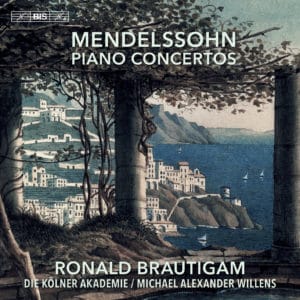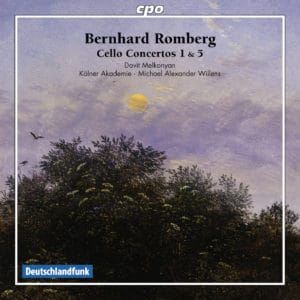16,00 € VAT included
plus Shipping Costs
Paolo Giacometti, Hammerklavier
Riko Fukuda, Hammerklavier
Kölner Akademie
Michael Alexander Willens
You can find even more Kölner Akademie at:
Anton Eberl
Piano Concerto in Eb op. 40
Paolo Giacometti, Hammerklavier
Piano Concerto in C op. 32
Riko Fukuda, Hammerklavier
Kölner Akademie
Michael Alexander Willens

incl. VAT
plus Shipping Costs
Add to cart
incl. VAT
plus Shipping Costs
Add to cart
incl. VAT
plus Shipping Costs
Add to cart
incl. VAT
plus Shipping Costs
Add to cart
Fanfare2012 –
EBERL Piano Concertos: in E[musical flat], op. 40(1); in C, op. 32(2) * 1Paolo Giacometti, 2Riko Fukuda (fp); Michael Alexander Willens, cond; Cologne Academy (period instruments) * CPO 777354 (62:03)
Copyright Fanfare, Inc. Mar/Apr 2009
Purchase not verified. Find out more
Peter Cossé –
Klassik Heute
Purchase not verified. Find out more